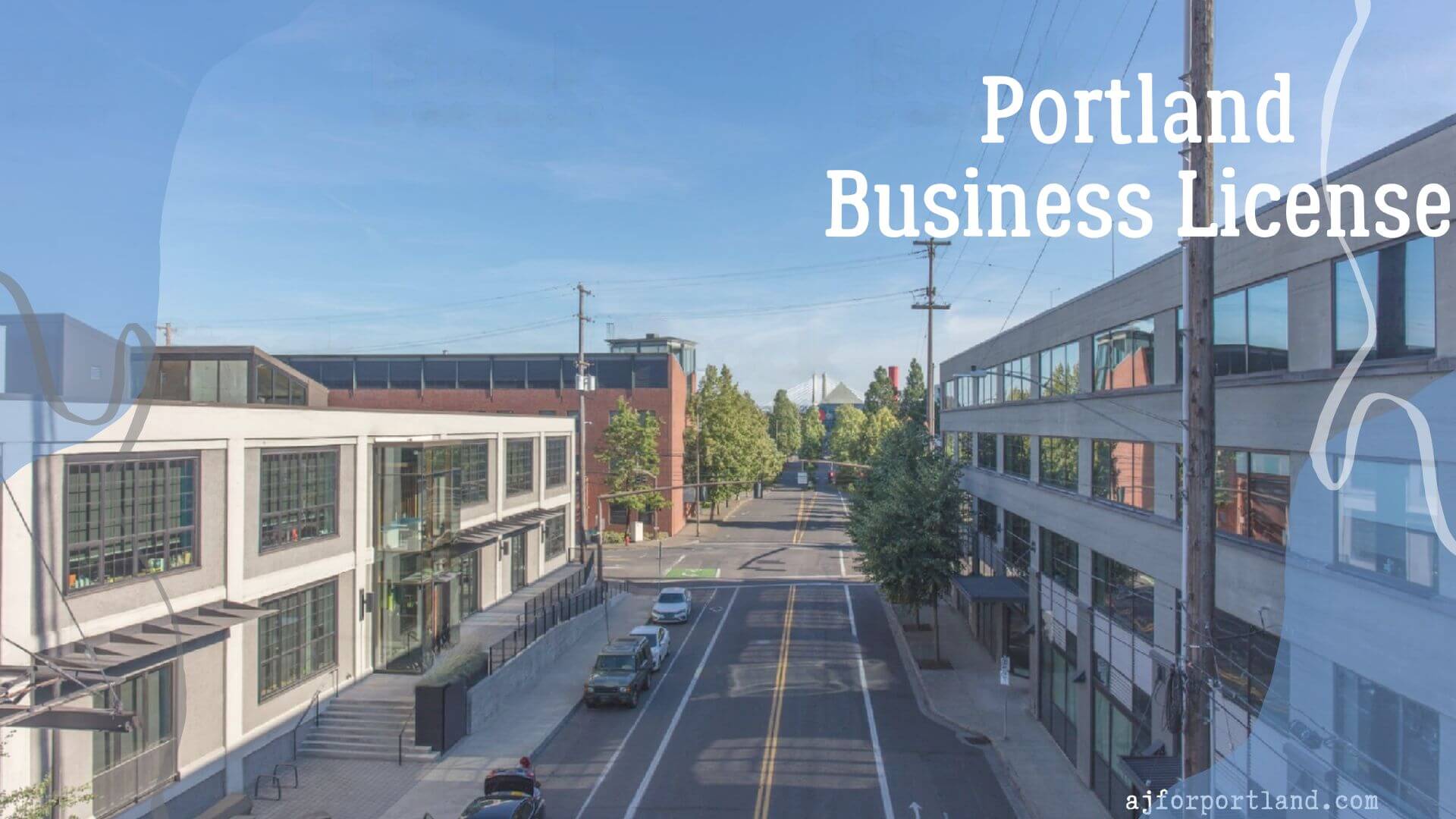Starting a business in Portland, Oregon can be an exciting and fulfilling endeavor. However, before you can start operating your business, you need to obtain a business license. A business license is a legal requirement that allows you to operate your business in compliance with local and state regulations. The process of obtaining a business license can seem overwhelming, especially if you are unfamiliar with the requirements and application process. In this article, we will guide you through the process of obtaining a Portland business license, including information on the Oregon Business Entity Search, LLC lookup, Oregon Corporation Division Search, and other important resources. Whether you are starting a small business or a larger corporation, this guide will provide you with the information you need to ensure your business is legally registered and compliant with all regulations.
What is a State License and Do You Need One for Your Business in Portland?
A state license is a legal requirement for certain types of businesses in Oregon. The state of Oregon issues licenses for specific professions, such as lawyers, doctors, and real estate agents, as well as for certain types of businesses, such as contractors and childcare providers. Additionally, businesses that sell certain types of products, such as alcohol or firearms, may require a specialized license.
In general, most businesses in Oregon are not required to obtain a state license, but they do need to obtain a business license to operate legally. The requirements for a business license vary depending on the type of business and its location. For example, businesses located in the city of Portland may have additional requirements, such as registering with the City of Portland Revenue Division and obtaining a City of Portland Business License.
It is important to research the specific requirements for your business and location to ensure that you are in compliance with all regulations. Failure to obtain the necessary licenses and permits can result in fines, penalties, and legal consequences.
How to Get a Business License in Portland: Step-by-Step Guide
Here is a step-by-step guide on how to obtain a business license in Oregon:
- Determine your business structure: Before you apply for a business license, you should determine the legal structure of your business. Common business structures in Oregon include sole proprietorships, partnerships, LLCs, and corporations.
- Register your business name: If you plan to operate your business under a name other than your own, you will need to register your business name with the Oregon Secretary of State’s office.
- Obtain a Portland business ID number: You will need to obtain an Oregon Business Identification Number (BIN) from the Oregon Department of Revenue. This number is used to identify your business for tax purposes.
- Check if your business requires a specialized license: Certain types of businesses, such as contractors and child care providers, require a specialized license. You can check if your business requires a specialized license by visiting the Oregon.gov website.
- Apply for your business license: You can apply for your business license online through the Oregon.gov website. The application will ask for information about your business, including your business name, location, and type of business.
- Pay the application fee: The cost of a business license varies depending on the type of business and location. You will need to pay the application fee when you submit your application.
- Receive your business license: Once your application is approved, you will receive your business license. You will need to display your license in a visible location at your business.
The process of obtaining a business license can vary depending on the location of your business and the type of business you are operating. You should research the specific requirements for your business and location to ensure that you are in compliance with all regulations.
Understanding Portland Business License Requirements
To obtain a business license in Oregon, you must meet certain requirements. Here are some key requirements to keep in mind:
- Business structure: You must have a legal business structure, such as a sole proprietorship, partnership, LLC, or corporation.
- Business name: If you plan to operate your business under a name other than your own, you will need to register your business name with the Oregon Secretary of State’s office.
- Oregon Business Identification Number (BIN): You will need to obtain an Oregon Business Identification Number (BIN) from the Oregon Department of Revenue. This number is used to identify your business for tax purposes.
- Location: You must have a physical location for your business. If you plan to operate your business from home, you may need to obtain a home occupation permit.
- Zoning requirements: You must comply with local zoning requirements for your business location. Some areas may have specific zoning requirements for certain types of businesses.
- Specialized licenses: If your business provides certain types of services or sells certain products, you may need to obtain a specialized license. Examples include contractors, child care providers, and businesses that sell alcohol or firearms.
- Business license fee: You will need to pay a fee when you apply for your business license. The cost of the fee varies depending on the type of business and location.
Research the specific requirements for your business and location to ensure that you are in compliance with all regulations. Failure to obtain the necessary licenses and permits can result in fines, penalties, and legal consequences.
State of Oregon Business License: Fees and Application Process
The cost of a business license in Oregon varies depending on the type of business and location. Here is an overview of the fees and application process for a business license in Oregon:
- Determine your business structure: Before you apply for a business license, you should determine the legal structure of your business.
- Register your business name: If you plan to operate your business under a name other than your own, you will need to register your business name with the Oregon Secretary of State’s office.
- Obtain an Oregon business ID number: You will need to obtain an Oregon Business Identification Number (BIN) from the Oregon Department of Revenue. This number is used to identify your business for tax purposes.
- Check if your business requires a specialized license: Certain types of businesses, such as contractors and child care providers, require a specialized license. You can check if your business requires a specialized license by visiting the Oregon.gov website.
- Apply for your business license: You can apply for your business license online through the Oregon.gov website. The application will ask for information about your business, including your business name, location, and type of business.
- Pay the application fee: The cost of a business license varies depending on the type of business and location. In general, the cost of a business license ranges from $50 to $100. You will need to pay the application fee when you submit your application.
- Receive your business license: Once your application is approved, you will receive your business license. You will need to display your license in a visible location at your business.
The process of obtaining a business license can vary depending on the location of your business and the type of business you are operating. You should research the specific requirements for your business and location to ensure that you are in compliance with all regulations.
Operating a Business Without a License: Risks and Consequences
Operating a business without a license can have serious risks and consequences. Here are some of the potential risks and consequences:
- Fines and penalties: If you operate a business without a license, you may be subject to fines and penalties from the state or local government. These fines can be significant, and they can add up quickly if you continue to operate your business without a license.
- Legal action: If you operate a business without a license, you may be subject to legal action from the state or local government. This can include lawsuits, injunctions, and other legal actions to stop you from operating your business.
- Damage to reputation: Operating a business without a license can damage your reputation with customers, vendors, and other businesses. Customers may be hesitant to do business with you if they know that you are operating without a license.
- Inability to obtain permits and contracts: Operating a business without a license can make it difficult or impossible to obtain permits and contracts for your business. This can limit your ability to grow your business and generate revenue.
- Criminal charges: In some cases, operating a business without a license can result in criminal charges. This is more likely to occur if you are operating a business in a regulated industry, such as healthcare or construction.
In short, operating a business without a license is not worth the risks. It is important to research the specific requirements for your business and location to ensure that you are in compliance with all regulations. If you are unsure about the licensing requirements for your business, you should consult with an attorney or a business advisor.
Summary
Obtaining a business license is a crucial step for any business operating in Oregon, including the city of Portland. It is important to understand the requirements and application process to ensure that your business is legally registered and compliant with all regulations. While most businesses in Oregon are not required to obtain a state license, they do need to obtain a business license to operate legally. Failure to obtain the necessary licenses and permits can result in fines, penalties, and legal consequences. It is essential to research the specific requirements for your business and location to ensure that you are in compliance with all regulations.


